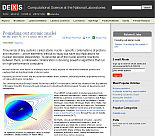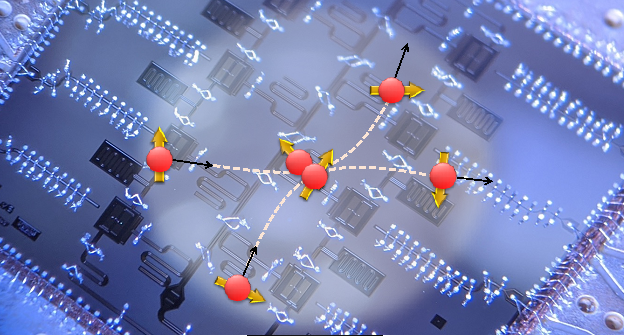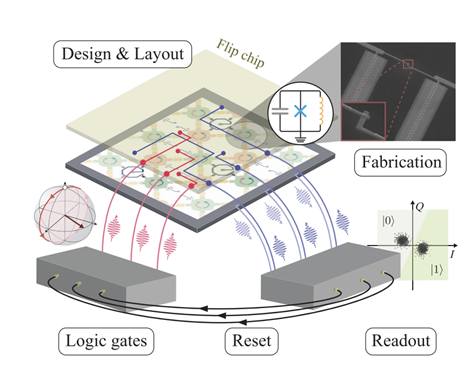Computational Science Graduate Fellowship (CSGF)
The Department of Energy's Computational Science Graduate Fellowship (DOE CSGF) program was developed to meet the Nation's growing need for science and technology professionals with advanced computer skills. As this need continues to rise into the 21st century, the DOE CSGF program has become even more important. The current potential shortage of skilled technology professionals could have severe consequences for the future. The shortage of computational scientists at Department of Energy laboratories is particularly notable. Approximately 30% of DOE CSGF alums work or have worked in DOE laboratories. In 2011, 19 DOE CSGF scientists (and engineers) completed the program, and 18 new fellows were accepted into the program. Currently the program supports 66 students at 31 universities in 18 states. Over 250 students at nearly 60 U.S. universities have trained as fellows, and the demand is only growing. In fact, in 2011, 628 applicants representing 46 states vied for the 18 available slots.
When created in the early 1990s, the Department of Energy's Computational Science Graduate Fellowship (DOE CSGF) was a bold experiment - a unique multi-disciplinary program focused on nurturing leading computational scientists. A decade later it's clear the fellowship was, and is, a visionary program - pivotal strategic investment in attracting and training our nation's foremost computational scientists.
The DOE Office of Science initiated the fellowship because of the critical importance of computational science to DOE's core missions, and a profound recognition of our nation's growing and continuing need for broadly trained advanced computational scientists in academia, industry and government laboratories.
The fellowship - now jointly funded by the DOE's Office of Science and the DOE's National Nuclear Security Administration - requires that graduate students plan and follow a course of study that transcends the bounds of traditional academic disciplines. It requires substantive graduate work in each of a scientific or engineering discipline, computer science and applied mathematics. Fellows receive tremendous guidance and support to assist them in becoming scientists and engineers who are able to comfortably communicate across disciplines.
Fellows also participate in a 12-week research experience at a DOE laboratory. In keeping with the DOE CSGF's interdisciplinary emphasis, this practicum must be in an area of research outside of the student's thesis dissertation. Laboratory supervisors are nearly unanimous in their enthusiasm for the high level of talent and skill that fellows bring to their practica and the quality of their work. DOE CSGF alumni and the current fellows form a core group of computational science leaders that joins industry, academia and DOE, and other government laboratories in a range of more than 30 critical disciplines from bioinformatics to nuclear engineering and astrophysics.
These alumni are bringing their diverse, top-level skills and knowledge to research teams at DOE laboratories, including Lawrence Berkeley National Laboratory, Sandia National Laboratories, Los Alamos National Laboratory and Pacific Northwest National Laboratory.
In 2020, 24 DOE CSGF scientists (and engineers) completed the program, and 26 new fellows were accepted into the program. Currently the program supports 99 students at 41 universities in 22 states. Nearly 500 students at more than 65 U.S. universities have trained as fellows. The program's alumni work in DOE laboratories, private industry and educational institutions.<
For more on the program, visit www.krellinst.org/csgf






